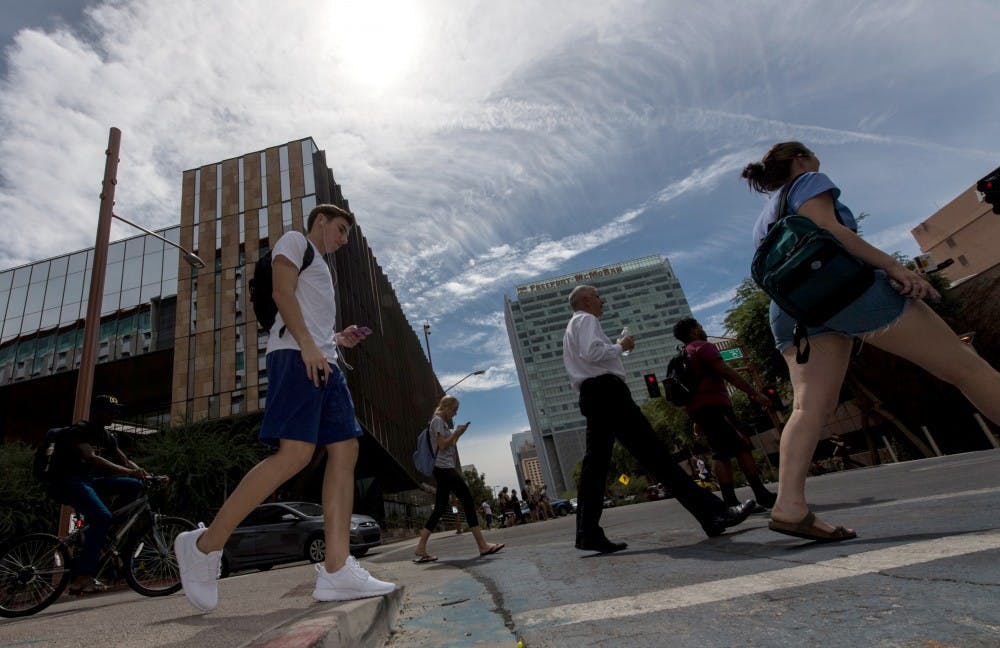The city life is not for everyone; that much is clear. However, over time, living in a city has become less of a choice.
In fact, it has been estimated that 70 percent of the world’s population will reside in a city by the time 2050 rolls around.
There is no denying that city life is far different from rural life. Cities have a denser population with more buildings and less nature-oriented spaces. These concrete jungles also feature environmental differences, contributing heavily to pollution and resource consumption.
These factors are heavily influential on the future distribution of humans in the world, but many discount the mental health effects of living in a city, especially for the youth.
According to research conducted by Dr. Andreas Meyer-Lindenberg of the Central Institute of Mental Health in Mannheim, Germany, individuals living in cities don’t handle stress as well as those who do not. Specifically, the perigenual anterior cingulate cortex (pACC) was far more active in stressed city dwellers. These brain patterns actually resembled that of Schizophrenics.
Social interactions are also influenced by environmental differences seen in cities. For example, citizens of a city are 21 percent more likely to develop an anxiety disorder, and 39 percent are more likely to develop a mood disorder.
Additionally, according to the British Journal of Psychiatry, city life is linked to a higher rate of depression for all age groups.
Being in college is stressful enough as it is without the added stress of living in a city. Two campuses at ASU, the Tempe and Downtown Phoenix campuses, reside in cities, which can pose problems for those who are already trying to adjust to new academic expectations and social circles.
This stress is particularly profound for students who are not familiar with city life.
“I think city life would be far more stressful for college students who had previously lived in more rural or small town environments,” Kathryn A. Johnson, Ph.D., assistant research professor for psychology department at ASU, said. “As one example, an incoming student can often feel very lonely even in the midst of thousands of others.”
Perhaps students are more affected by the trauma of city life than they may think. Because feeling overwhelmed naturally comes with adjustment periods and the added academic strain of college, people often overlook the effect of their environment on their mental health.
Students would be wise to leave the city and explore when they can to escape the hustle and bustle that comes with living in such a dense population of individuals.
However, many students don’t have the means to accomplish this, so in order to avoid becoming inundated with stress, they can seek out smaller communities within the city or school. This way, the city won’t feel so large and cumbersome.
“The best way to alleviate some of that stress would be for the student to live on campus and to become involved with other members of the ASU community,” Johnson said. “Building a social network and close relationships with the people nearby could provide a buffer against such stressors.
"I would recommend that any student take advantage of the many opportunities to join a campus organization, participate in volunteer activities or create a study group. Having one or two close friends nearby can make a bustling world of strange faces seem much less overwhelming.”
Cities, though full of life and activity, can take their toll on individuals, especially those adjusting to the trials of college, but there are ways to alleviate this stress.
Reach the columnist at ghirneis@asu.edu or follow @ghirneise2 on Twitter.
Editor’s note: The opinions presented in this column are the author’s and do not imply any endorsement from The State Press or its editors.
Want to join the conversation? Send an email to opiniondesk.statepress@gmail.com. Keep letters under 300 words and be sure to include your university affiliation. Anonymity will not be granted.
Like The State Press on Facebook and follow @statepress on Twitter.




